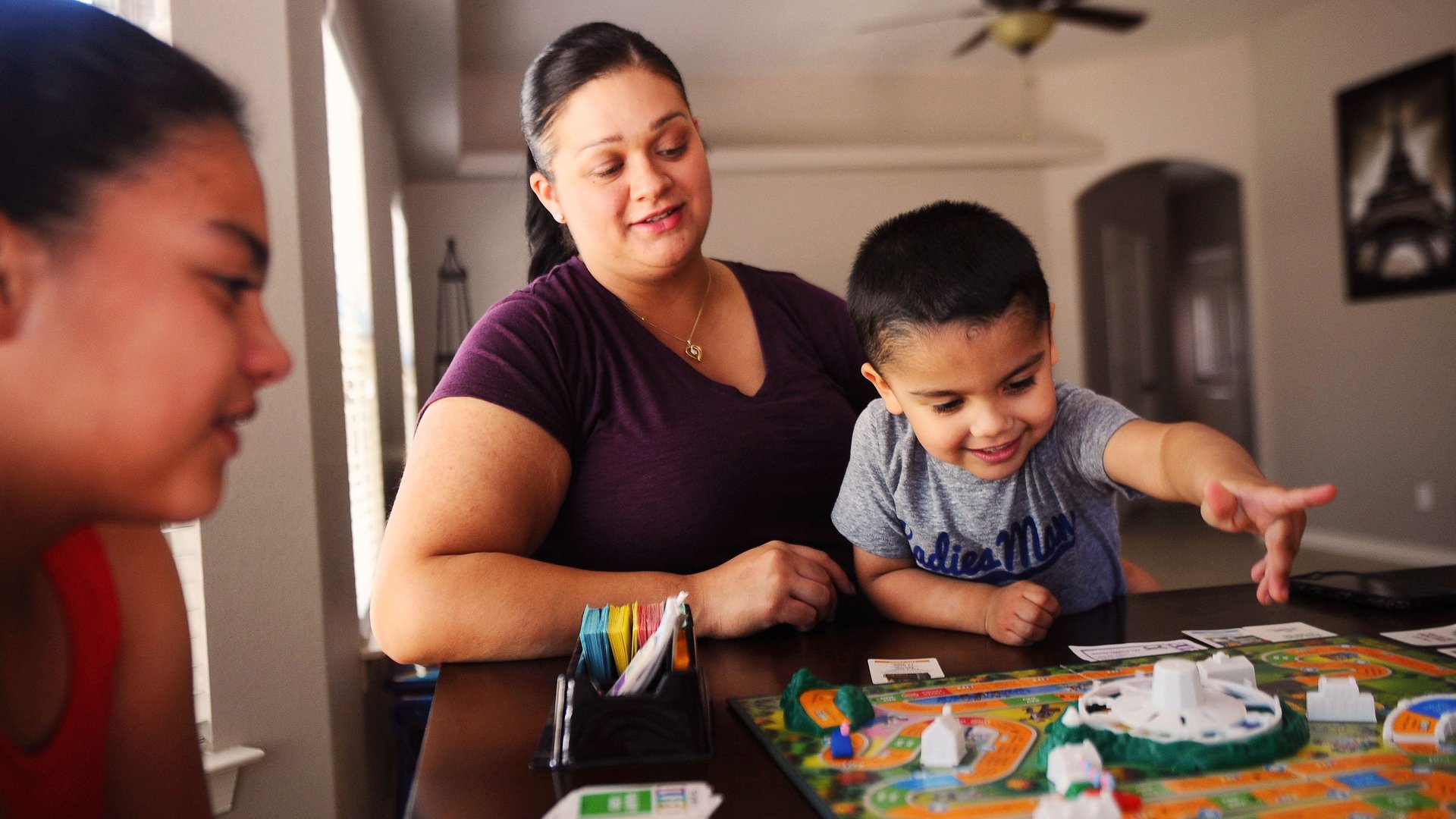The best way to bring families together? Slay a dragon
My sister once tried to distract an angry dragon by inquiring after its relationship with its parents.


My sister once tried to distract an angry dragon by inquiring after its relationship with its parents.
This move brought equal parts confusion and hilarity to a session of Dungeons & Dragons, the role-playing game my four siblings and I were playing. (D&D created the blueprint nerd culture still follows today.) Most of the year we are rarely in the same continent, let alone the same place, so playing games when we are together is our way of feeling connected and remembering we are a team.
Table-top board games affirm human bonds through face-to-face interaction, which is liberating in an age saturated with virtual spaces. Earlier this year, talks to buy Settlers of Catan makers Asmodee for $1.4 billion showed that strategy games and the experience they offer continues to sell. When it comes to playing with family, this sense of connection is even more heightened because research shows that families are already social systems.
Embarking on a quest, whether that’s fighting off goblins or solving a murder mystery, can be a time to learn. A study published in the Child Development journal this year found that parental influence aside, both older and younger siblings significantly affect each other’s sense of empathy. When one of my brothers needlessly started a fictional tavern fight, which you can do in D&D because action options are limitless, the rest of us had to deal with the consequences. Conversely, my sister’s gentle probe into a dragon’s family dynamics were a reminder that someone’s struggles might not always be on the surface.
Both situations deepened our emotional intelligence. Beyond that, they also showed how board games can level the playing field, because ages don’t matter as much in a fantasy world as they do in determining sibling hierarchies in reality. In the imagined realm, the 16-year-old little sister can be much more powerful than the 29-year-old brother, which equalizes everyone’s value on the family team.
John Keefe, author of Family Projects for Smart Objects, developer in the Quartz Bot Studio, and founder of “Girls Who Mine,” a Minecraft group that has since taken a back seat once his daughters aged out, said there are added benefits to experimenting with fictional outcomes. “A big part of growing up is learning how the rules are bent safely, which game play allows,” Keefe said. No tavern brawls recommended, though.
During gaming sessions, we are also very often building something (like our farm estates in Agricola) or building up to something (like the correct combination of clues in Mysterium). This sense of mutual creation is important because otherwise, “it’s too easy to be disconnected,” Keefe said. And it’s true: There are very few times in the modern world when family members are collectively alert, engaged, and have equal stakes in a quest. During a board game adventure, screens become redundant.
And so they remind us of an older time, when smart devices weren’t in the picture, which is a period my 33-year-old brother lived through but my little sister has never known. “It’s a space to pass on nostalgia,” Keefe said.
But maybe it’s more primordial than that, because the urges to create as a family and sustain those creations are part of humankind’s most primitive instincts. Our ancient ancestors, early homosapiens and neanderthals alike, actively adapted their survival methods in the face of a changing world. This could range from switching hunting strategies to building stronger shelters. John Stewart, a paleoecologist at the University of Bournemouth, told the BBC that modern humans outlived the neanderthals because we could innovate quickly, particularly as a group, when put under stress.
Survival today is about maintaining connections that go beyond a virtual comment or speaking through a screen. When your family no longer lives together, the chance to work on something together in real life is precious. The shared experience of making it through a board game lets us relive an impulse that is age-old.
We managed to defeat the dragon, by the way. I rolled a 20, which is basically a golden ticket to do anything in the D&D world, and the flame-spitting beast kindly let us go. My family is waiting for the next time we can go on a quest again and try to survive, and thrive, in a world we built on our own.